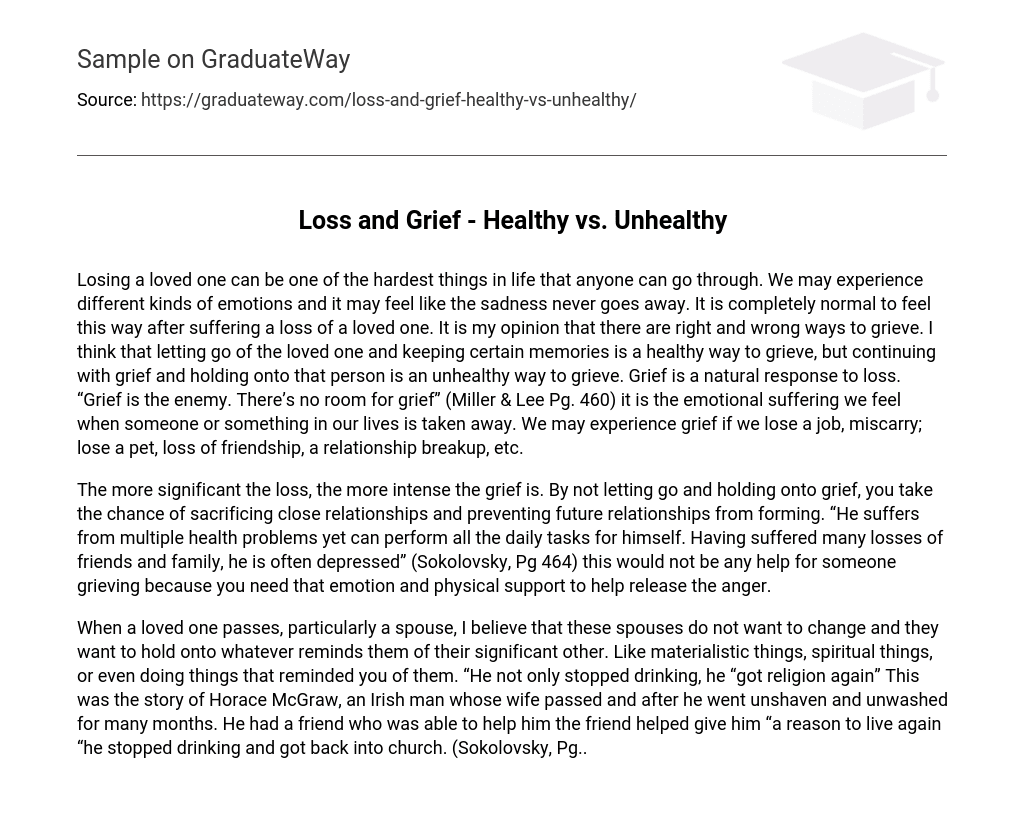Losing a loved one can be one of the hardest things in life that anyone can go through. We may experience different kinds of emotions and it may feel like the sadness never goes away. It is completely normal to feel this way after suffering a loss of a loved one. It is my opinion that there are right and wrong ways to grieve. I think that letting go of the loved one and keeping certain memories is a healthy way to grieve, but continuing with grief and holding onto that person is an unhealthy way to grieve. Grief is a natural response to loss. “Grief is the enemy. There’s no room for grief” (Miller & Lee Pg. 460) it is the emotional suffering we feel when someone or something in our lives is taken away. We may experience grief if we lose a job, miscarry; lose a pet, loss of friendship, a relationship breakup, etc.
The more significant the loss, the more intense the grief is. By not letting go and holding onto grief, you take the chance of sacrificing close relationships and preventing future relationships from forming. “He suffers from multiple health problems yet can perform all the daily tasks for himself. Having suffered many losses of friends and family, he is often depressed” (Sokolovsky, Pg 464) this would not be any help for someone grieving because you need that emotion and physical support to help release the anger.
When a loved one passes, particularly a spouse, I believe that these spouses do not want to change and they want to hold onto whatever reminds them of their significant other. Like materialistic things, spiritual things, or even doing things that reminded you of them. “He not only stopped drinking, he “got religion again” This was the story of Horace McGraw, an Irish man whose wife passed and after he went unshaven and unwashed for many months. He had a friend who was able to help him the friend helped give him “a reason to live again “he stopped drinking and got back into church. (Sokolovsky, Pg..





